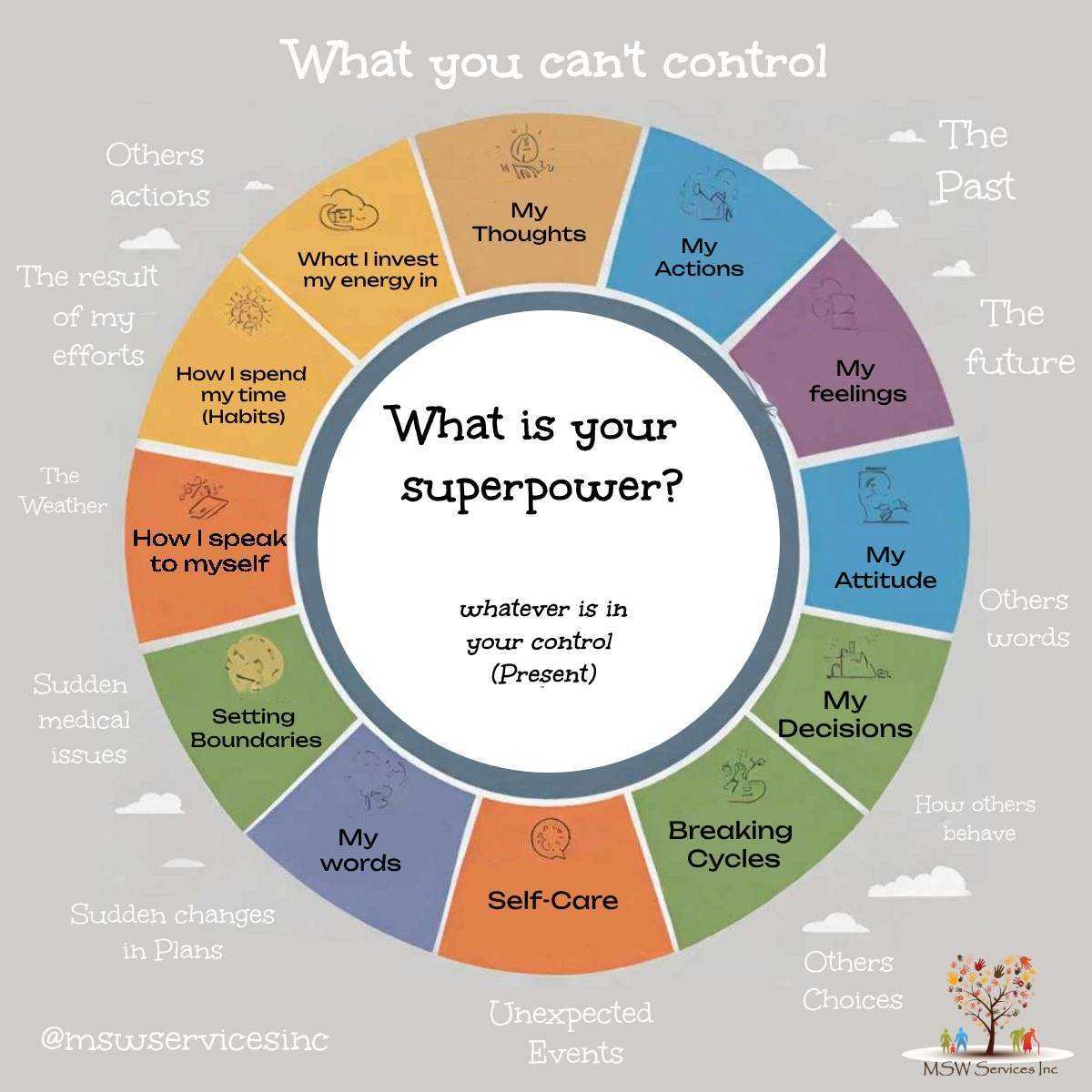
Acceptance in Mental Health
Acceptance- is the line of demarcation between two realities. Control and our of your control and one’s current reality versus past memories
Understanding Acceptance
Acceptance isn’t passive resignation but an ACTIVE, conscious choice to acknowledge and accept our current circumstances without judgment or resistance – not that this means we approve of or desire these aspects; just that we accept them for what they are.
The Line of Demarcation: Control vs. Out of Control
Life presents us with situations that fall into two categories: those we can control, and those we cannot. Acceptance helps us identify these distinctions, creating peace and resilience. By accepting what cannot be changed, we free ourselves from futile struggles against what cannot be altered while instead channeling energy and effort toward those areas where change can indeed happen.
Acceptance and Past Memories
Our past has shaped who we are but doesn’t need to dictate who or where we are now or in the future. Acceptance plays an integral part here -It involves acknowledging and understanding our past, learning from it, but not allowing it to overshadow our current life which is essential for both emotional development and mental wellness.
Acceptance in Mental Health
- Reducing Anxiety and Stress: By accepting what we cannot change, acceptance helps decrease tension and anxiety caused by resisting things beyond our control.
- Expanding Emotional Awareness: Acceptance promotes mental and emotional self-awareness, encouraging us to confront the difficult emotions that we have suppressed over time. Allowing yourself to embrace the emotions creates a level of vulnerability that will allow us to understand and manage our feelings effectively.
- Facilitating Change: In accepting things for what they are, paradoxically we create a stable platform upon which true transformation may take place.
- Strengthen Relationships: Acceptance extends to our relationships, promoting understanding and compassion towards ourselves and others.
- Awareness of the Here and Now: Living in the moment promotes a sense of gratitude and appreciation of daily accomplishments. It promotes intentionality and sustainability of goals created and accomplished. It promotes understanding of what is in one’s control or out of one’s control.
Strategies for Cultivating Acceptance
- Cognitive Reframing: Cognitive reframing involves shifting negative thought patterns in order to view situations more positively and realistically.
- Journaling: Writing out our experiences and emotions can bring clarity, helping foster acceptance. Writing it down gives up a visual and creates more context in how we process the information when read back to ourselves. Sometimes it gives a different perspective to emotions we feel.
- Seeking Professional Help: Therapists and counselors can guide individuals along their path of acceptance when grappling with complex emotions or traumatic pasts.
1. Mindfulness Practice: Engage in daily mindfulness exercises, like meditation or mindful walking.
- Benefit: Mindfulness can help us acknowledge and accept our thoughts and emotions without judgment. Helps you stay anchored in the present moment, reducing the grip of past regrets or future anxieties.
- Action Step: Dedicate 10 minutes each day to sit quietly, focusing on your breath and observing your thoughts without judgment.
2. Journaling for Reflection:
- Technique: Regularly write in a journal, focusing on your feelings and experiences.
- Benefit: Allows you to process emotions and gain insights into your reactions to situations.
- Action Step: Each evening, spend a few minutes writing about your day, particularly moments you struggled to accept.
3. Cognitive Restructuring:
- Technique: Challenge and change negative thought patterns.
- Benefit: Helps in recognizing and altering unrealistic expectations and self-critical thoughts.
- Action Step: When you catch yourself ruminating on things you can’t control, consciously redirect your thoughts to what you can influence.
4. Expressive Arts:
- Technique: Use art, music, or writing to express and understand your emotions.
- Benefit: Provides a non-verbal outlet for emotions, aiding in processing and accepting them.
- Action Step: Engage in an artistic activity that resonates with you, focusing on expressing your feelings rather than creating a perfect outcome.
5. Practicing Gratitude:
- Technique: Maintain a daily gratitude journal.
- Benefit: Shifts focus from what’s lacking or undesirable to what’s positive and fulfilling.
- Action Step: Write down three things you are grateful for each day, no matter how small.
6. Professional Guidance:
- Technique: Seek support from a mental health professional if needed.
- Benefit: Offers expert advice and strategies tailored to your specific challenges.
- Action Step: Consider therapy or counseling as a safe space to explore and understand your difficulties with acceptance.
Acceptance is not just a concept but an invaluable tool in mental health. By accepting reality as it exists now and learning to distinguish between what can be controlled and let go, as well as past influences versus potential future opportunities, acceptance opens doors to emotional wellbeing, resilience and living a mindful life with joy and satisfaction.
